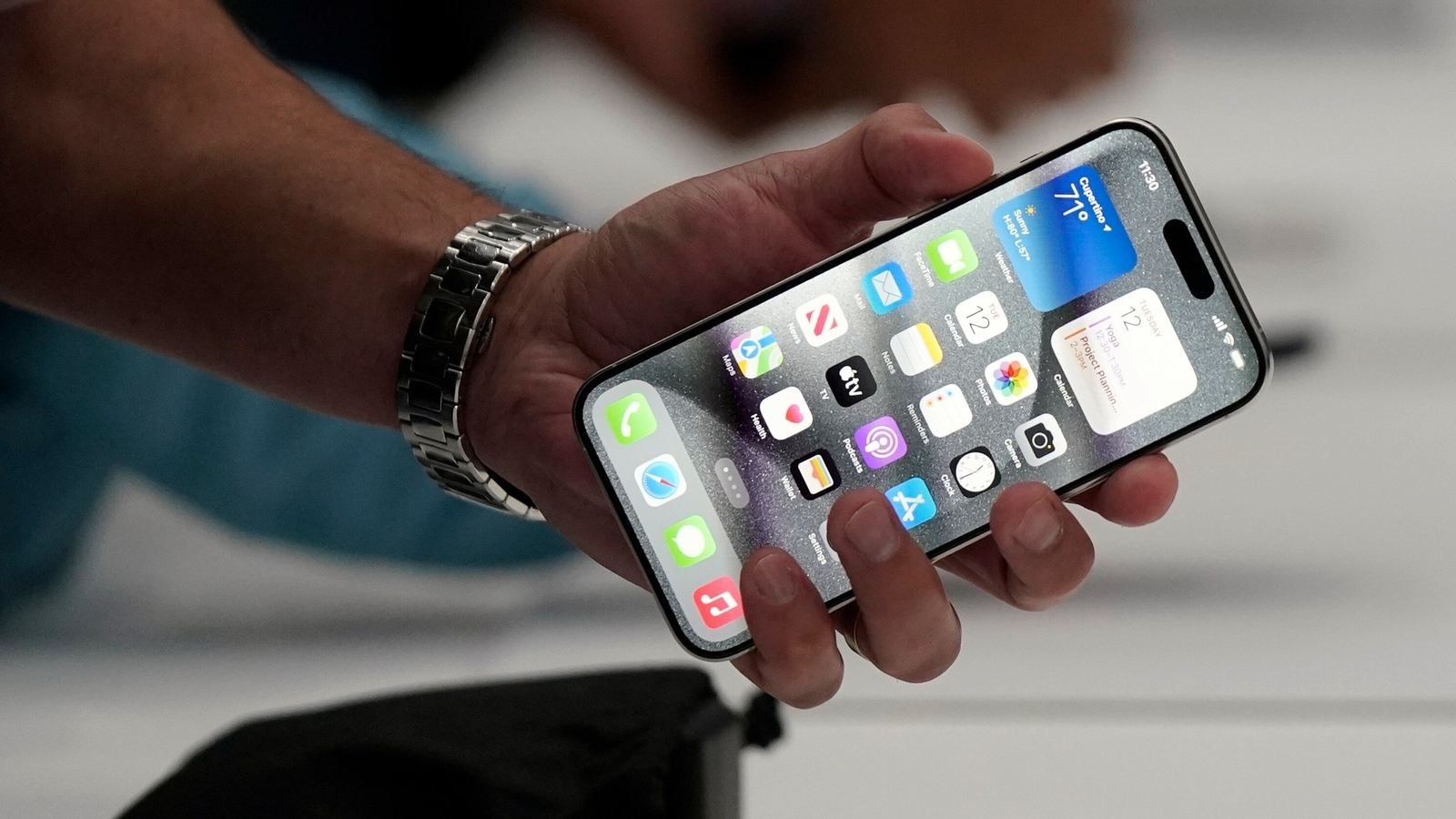## The Language Barrier Just Got a Whole Lot Smaller: iPhone Users Can Now Choose Google Translate as Their Default For years, iPhone users have relied on Apple’s built-in translate functionality, but now there’s a new sheriff in town. Hindustan Times reports that Apple has finally opened the door for third-party translation apps, and the big winner? Google Translate. This game-changing move means you can now ditch Apple’s offering and embrace the power and versatility of Google’s renowned translation engine. But what does this mean for iPhone users and the world of communication? Let’s dive in and explore the implications of this monumental shift.
Challenging Apple’s Translate: The Rise of Third-Party Options

In a significant move, Unionjournalism has reported that iPhone users can now choose Google Translate as their default translation app, marking a change from Apple’s native Translate app. This update is part of a broader initiative to offer users more control over their iPhones’ functionality and reflects the growing demand for third-party options in the translation space.
The rise of third-party translation apps has been a significant trend in recent years, driven by the need for more accurate and nuanced translations. Google Translate, in particular, has been a leader in this space, offering a wide range of features and languages that have made it a popular choice among users.
The ability to set Google Translate as the default translation app is a significant step forward for users who prefer third-party options. It also reflects the growing competition in the translation space, with other players like Microsoft Translator and iTranslate offering similar features and functionalities.
According to a report by Unionjournalism, the update is expected to benefit users who need to communicate in multiple languages, particularly in situations where accuracy and nuance are critical. The report also highlights the growing importance of translation in the digital age, with more and more people relying on technology to facilitate communication across languages and cultures.

Meeting Global Needs: Localized Features for Diverse Audiences
The update reflects Apple’s growing recognition of the need for localized features and functionalities that cater to diverse audiences. With the rise of globalization and the increasing importance of digital communication, companies are under pressure to provide features and services that meet the needs of users from different cultures and languages.
The introduction of the Translation category in iOS 18.4 is a significant step towards meeting this need. By allowing users to set third-party translation apps like Google Translate as their default, Apple is recognizing the importance of offering users the flexibility to choose the translation tool that best meets their needs.
The update also reflects the growing demand for localized features and functionalities in the digital age. With more and more people relying on technology to facilitate communication and collaboration across languages and cultures, companies are under pressure to provide features and services that cater to diverse audiences.
According to a report by Unionjournalism, the update is expected to benefit users who need to communicate in multiple languages, particularly in situations where accuracy and nuance are critical. The report also highlights the growing importance of translation in the digital age, with more and more people relying on technology to facilitate communication across languages and cultures.
Implications for Apple’s App Ecosystem
The update has significant implications for Apple’s app ecosystem, which has traditionally been dominated by the company’s own native apps. The introduction of the Translation category and the ability to set third-party translation apps like Google Translate as the default highlights the growing competition in the app space and the need for Apple to adapt to changing user needs.
The update also reflects the growing importance of third-party apps in the digital age. With more and more people relying on technology to facilitate communication and collaboration across languages and cultures, companies are under pressure to provide features and services that cater to diverse audiences.
According to a report by Unionjournalism, the update is expected to benefit users who need to communicate in multiple languages, particularly in situations where accuracy and nuance are critical. The report also highlights the growing importance of translation in the digital age, with more and more people relying on technology to facilitate communication across languages and cultures.

Navigating the Future: The Power of User Control
The EU’s Navigation Preference: A Shift Towards Open Markets
The update reflects the growing trend towards open markets and user control in the digital age. With the rise of globalization and the increasing importance of digital communication, companies are under pressure to provide features and services that cater to diverse audiences and meet the needs of users from different cultures and languages.
The introduction of the Navigation category in iOS 18.4 is a significant step towards meeting this need. By allowing users to set third-party navigation apps like Google Maps or Waze as their default, Apple is recognizing the importance of offering users the flexibility to choose the navigation tool that best meets their needs.
The update also reflects the growing demand for user control and flexibility in the digital age. With more and more people relying on technology to facilitate communication and collaboration across languages and cultures, companies are under pressure to provide features and services that cater to diverse audiences.
User Empowerment: A Trend Towards Personalized Tech Experiences
The update reflects the growing trend towards user empowerment and personalized tech experiences in the digital age. With the rise of globalization and the increasing importance of digital communication, companies are under pressure to provide features and services that cater to diverse audiences and meet the needs of users from different cultures and languages.
The introduction of the Translation category and the ability to set third-party translation apps like Google Translate as the default highlights the growing importance of user control and flexibility in the digital age. By allowing users to choose the translation tool that best meets their needs, Apple is recognizing the importance of offering users a personalized tech experience.
The update also reflects the growing demand for user empowerment and personalized tech experiences in the digital age. With more and more people relying on technology to facilitate communication and collaboration across languages and cultures, companies are under pressure to provide features and services that cater to diverse audiences.
The Evolving Landscape of App Default Settings
The update reflects the evolving landscape of app default settings in the digital age. With the rise of globalization and the increasing importance of digital communication, companies are under pressure to provide features and services that cater to diverse audiences and meet the needs of users from different cultures and languages.
The introduction of the Translation category and the ability to set third-party translation apps like Google Translate as the default highlights the growing importance of user control and flexibility in the digital age. By allowing users to choose the translation tool that best meets their needs, Apple is recognizing the importance of offering users a personalized tech experience.
The update also reflects the growing demand for user empowerment and personalized tech experiences in the digital age. With more and more people relying on technology to facilitate communication and collaboration across languages and cultures, companies are under pressure to provide features and services that cater to diverse audiences.
Conclusion
Conclusion:
The recent announcement by Apple of allowing iPhone users to choose Google Translate as their default translation app is a significant development in the world of mobile technology. This shift marks a major milestone in the ongoing competition between tech giants Apple and Google, as users are now free to choose their preferred translation service. According to the article in Hindustan Times, this move is expected to boost competition, ultimately benefiting consumers who can now access a wider range of translation options. Key takeaways from the article include the growing importance of language accessibility, the increasing role of AI-powered translation tools, and the expanding choices available to iPhone users.
The implications of this development are far-reaching, extending beyond the realm of mobile technology to the broader landscape of global communication and collaboration. As the world becomes increasingly interconnected, language barriers will continue to pose significant challenges. By providing users with the ability to choose their preferred translation app, Apple is acknowledging the importance of accessibility and inclusivity in a rapidly globalizing world. This move can be seen as a major step forward in promoting cross-cultural understanding and facilitating communication across linguistic and cultural divides.
As we move forward in this era of rapid technological advancement, it is clear that the lines between translation, AI, and mobile technology will continue to blur. The ability to choose default translation apps will become even more crucial in the future, particularly as we navigate the complexities of a multilingual world. In conclusion, the decision to allow Google Translate as the default translation app is a testament to the power of choice and innovation in the world of technology, and serves as a reminder that, in a world of ever-increasing complexity, the ability to communicate effectively will be the key to unlocking new possibilities and connections.
